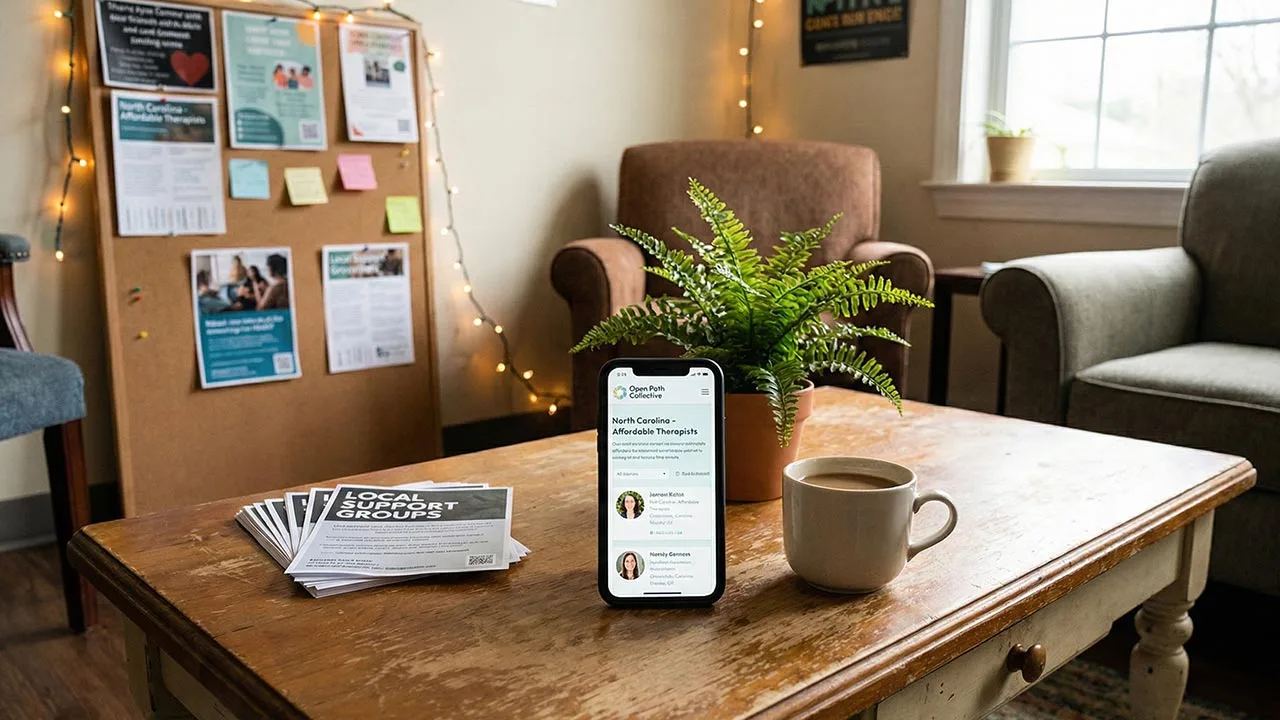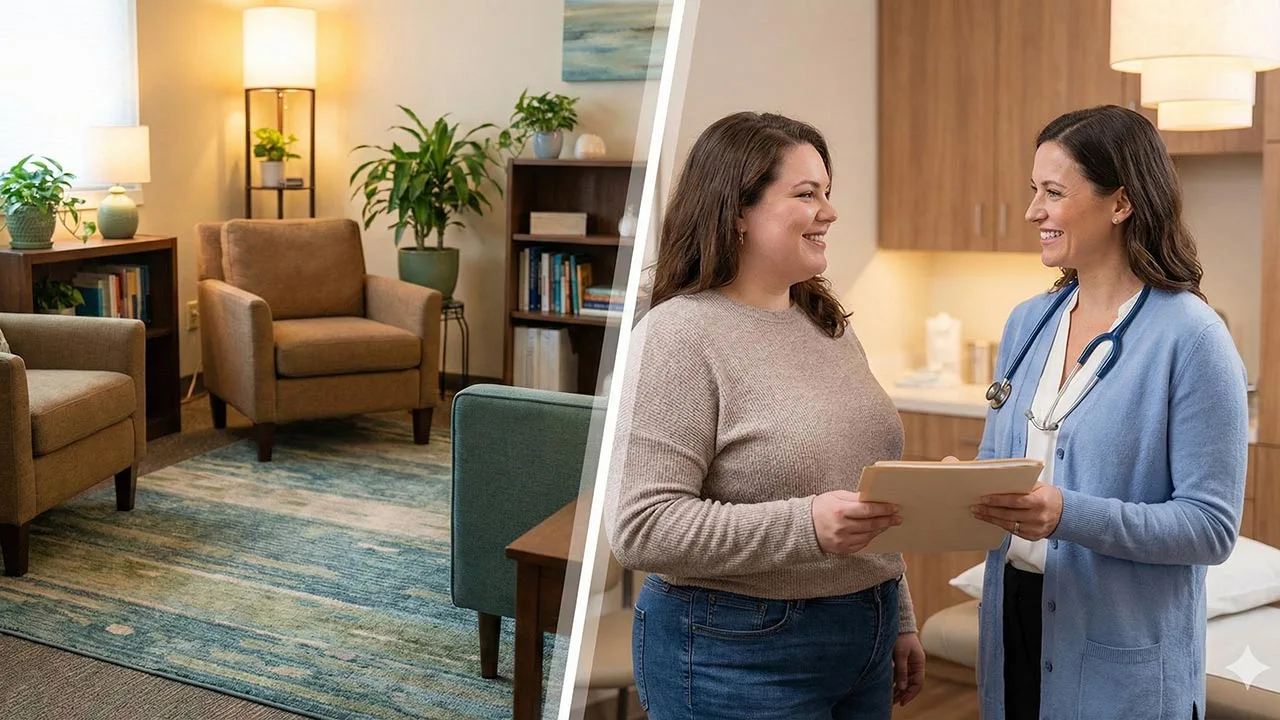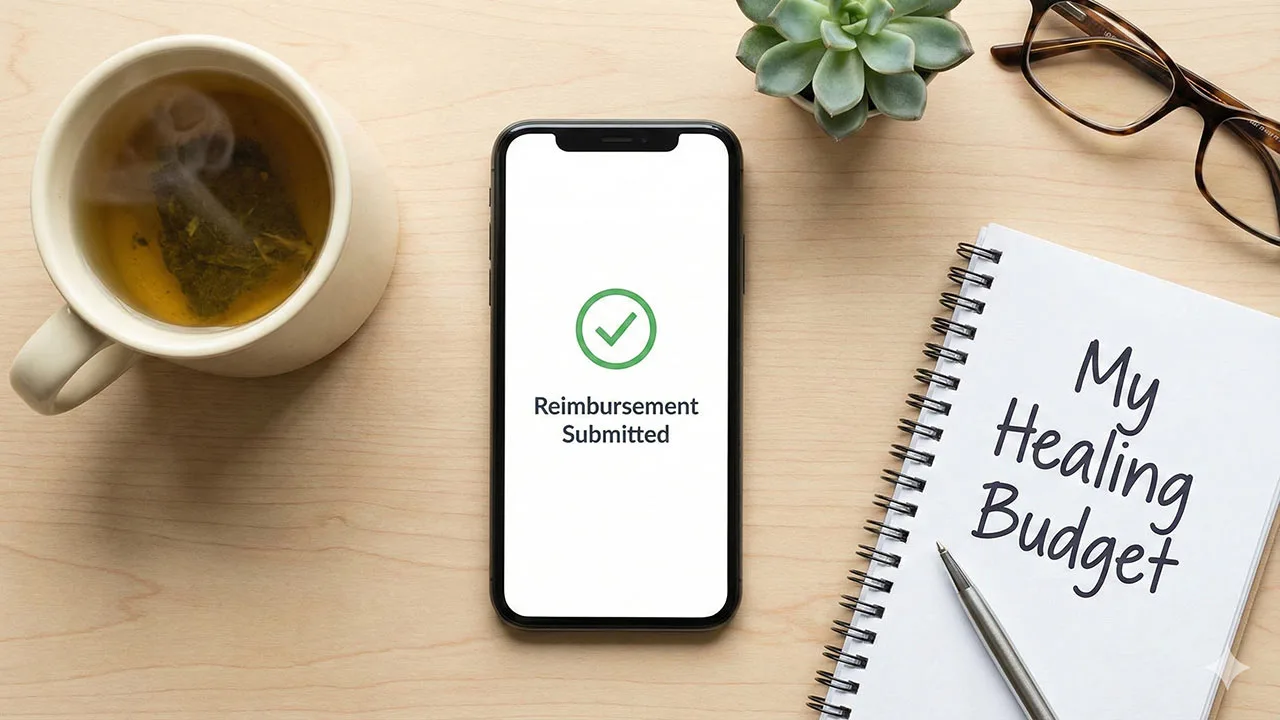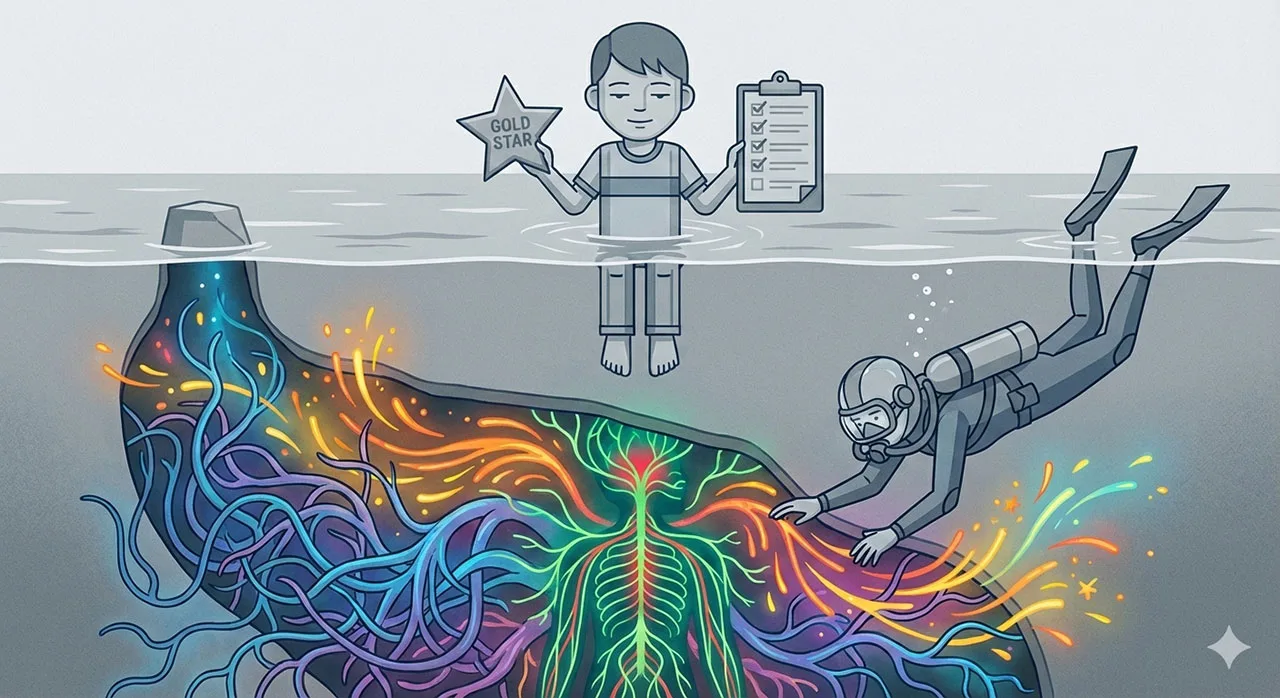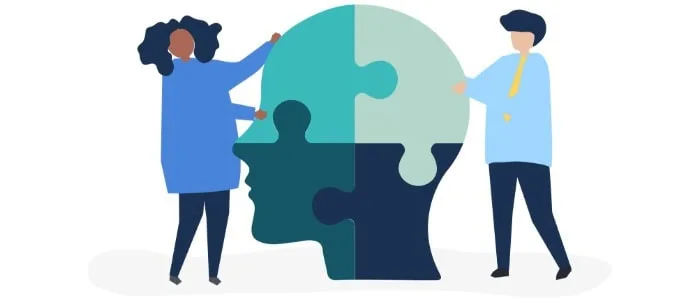Culturally-Inclusive Healing for Stronger Minds
Mental health is integral to our well-being, affecting every facet of our lives. For individuals from Black, Indigenous, and People of Color (BIPOC) communities, navigating the complexities of mental health can be uniquely challenging. Discrimination, cultural stigma, and historical trauma often create hurdles that can feel insurmountable.
In this blog, we embark on a journey to explore how BIPOC therapy, a powerful and culturally inclusive approach to healing, plays a crucial role in fostering stronger minds and promoting mental well-being. Let’s delve into BIPOC therapy and understand its profound impact on mental health.
Understanding BIPOC Therapy
BIPOC Therapy, an acronym for Black, Indigenous, and People of Color Therapy, is a specialized branch of mental health support designed to address the unique needs and challenges faced by individuals from marginalized communities. It has evolved as a response to the historical underrepresentation and misrepresentation of BIPOC individuals in traditional therapy.
Fundamental principles of BIPOC Therapy revolve around cultural competence, humility, and sensitivity. It aims to create a safe and understanding space where therapists acknowledge the cultural and racial aspects of a client’s identity. Understanding the historical context and foundations of BIPOC Therapy is crucial for appreciating its significance in providing more inclusive and effective mental health care.
The Unique Mental Health Challenges Faced by BIPOC Communities
BIPOC communities, consisting of Black, Indigenous, and People of Color individuals, face a distinctive set of mental health challenges, often rooted in systemic and historical injustices. Understanding these challenges is essential for addressing them effectively:
- Disparities in Mental Health Outcomes: BIPOC individuals often experience disproportionately higher mental health issues, such as anxiety and depression, due to systemic inequalities, discrimination, and economic disparities.
- Stigma and Cultural Factors: Cultural norms and stigma within BIPOC communities may deter individuals from seeking mental health support. There may be pressure to maintain a facade of strength or resilience, which can hinder reaching out for help.
- Racial Trauma: Experiences of racism, discrimination, and microaggressions can lead to racial trauma, a unique form of psychological distress. This trauma can impact self-esteem, identity, and overall mental well-being.
- Barriers to Access: BIPOC communities often face financial, logistical, and systemic barriers when accessing mental health services. These barriers can limit their ability to seek and receive appropriate care.
- Cultural Appropriation and Insensitivity: Traditional therapy may not always recognize or validate the cultural identities and experiences of BIPOC individuals, leading to feelings of cultural insensitivity or even appropriation.
- Language and Communication Barriers: Language and communication can be significant barriers to effective therapy, especially for non-English-speaking BIPOC individuals.
- Mistrust of Healthcare Systems: Historical abuses and unethical practices within healthcare systems have led to a deep-seated mistrust among some BIPOC communities, making it challenging to engage with mental health services.
Addressing these unique mental health challenges faced by BIPOC communities requires culturally sensitive, inclusive, and tailored approaches, which BIPOC Therapy seeks to provide.
The Benefits of BIPOC Therapy
BIPOC Therapy offers a range of benefits that contribute to improved mental health and overall well-being for individuals from Black, Indigenous, and People of Color communities. These benefits highlight the significance of culturally inclusive therapy:
- Culturally Sensitive Approach: BIPOC Therapy recognizes the importance of cultural context and identity, ensuring that individuals feel understood and respected in their unique experiences. This sensitivity fosters trust and rapport between clients and therapists.
- Building Trust and Rapport: By acknowledging and addressing the historical and systemic factors that affect BIPOC communities, therapists in this field can establish a strong foundation of trust with their clients. This trust is essential for effective therapy.
- Addressing Cultural Stigma: BIPOC Therapy aims to break down cultural stigma associated with mental health in these communities. Validating cultural experiences and identities encourages individuals to seek the support they need without fear of judgment.
- Reducing Barriers to Access: BIPOC Therapy often operates in more accessible and community-based settings, making it easier for individuals to access mental health services. This can help bridge the gap in disparities in mental health care access.
- Tailored Treatment Plans: Therapists in BIPOC Therapy are trained to develop treatment plans that consider the cultural, racial, and ethnic backgrounds of their clients. These plans are personalized to meet individuals’ unique needs and challenges, leading to more effective outcomes.
- Diverse Therapeutic Techniques: BIPOC Therapy draws from a range of therapeutic approaches, ensuring clients can access diverse techniques that resonate with their specific needs and preferences.
How BIPOC Therapy Differs from Traditional Therapy
BIPOC Therapy, a specialized branch of mental health support for Black, Indigenous, and People of Color communities, differs from traditional therapy in several key ways, emphasizing the importance of culturally sensitive and inclusive care:
- Cultural Competence and Humility: BIPOC Therapy strongly emphasizes cultural competence and humility. Therapists are trained to understand the cultural, racial, and ethnic backgrounds of their clients, ensuring that they can navigate sensitive topics with sensitivity and respect.
- Tailored Treatment Plans: Traditional therapy often takes a one-size-fits-all approach, whereas BIPOC Therapy customizes treatment plans to meet the unique needs and challenges of individuals from diverse backgrounds. Therapists adapt techniques and strategies to align with the client’s cultural identity and experiences.
- Acknowledgment of Racial Trauma: BIPOC Therapy acknowledges and addresses racial trauma, which is often not a central focus in traditional therapy. Therapists help clients process the impact of racism and discrimination on their mental health, providing a safe space for discussions on these traumatic experiences.
- Diverse Therapeutic Techniques: While traditional therapy predominantly relies on mainstream therapeutic techniques, BIPOC Therapy draws from diverse approaches, including culturally specific and alternative therapies. This diversity ensures clients can access techniques that resonate with their unique needs.
- Community-Centered and Holistic Approach: BIPOC Therapy often takes a more community-centered and holistic approach. Therapists may work within or closely with the client’s community, providing a broader support network that recognizes the importance of family, culture, and community in healing.
- Advocacy and Empowerment: Besides providing mental health support, BIPOC Therapy often includes an advocacy and empowerment component. Therapists encourage clients to advocate for their own mental health and address systemic issues affecting their well-being. This empowerment can extend to community-level change and activism.

How to Find BIPOC Therapy Services
Finding BIPOC Therapy services can be essential to receiving culturally inclusive and supportive mental health care. Here are some steps to help you find BIPOC Therapy services:
- Online Directories: Numerous online directories and databases specialize in listing BIPOC therapists. Websites like Therapy for Black Girls, InnoPsych, and Melanin and Mental Health provide searchable databases that can help you find qualified BIPOC therapists in your area.
- Cultural Organizations: Local cultural or community organizations, particularly those focused on mental health, may have resources and connections to BIPOC therapists. Reach out to these organizations for recommendations or referrals.
- Ask for Referrals: Seek recommendations from friends, family members, or colleagues who have had positive experiences with BIPOC therapists. Personal referrals can be valuable in finding the right therapist for your needs.
- Therapist Directories: You can also explore therapist directories provided by professional mental health associations. Look for therapists with expertise or specialization in working with BIPOC clients, such as members of the Association of Black Psychologists or the National Latino Psychological Association.
- Health Insurance Providers: Contact your health insurance provider to inquire about therapists specializing in BIPOC mental health services. They can provide a list of in-network providers who may fit your needs well.
Challenges and Future Considerations
Challenges and future considerations in BIPOC therapy are vital for advancing culturally inclusive mental health care. Challenges persist in addressing systemic inequalities, increasing awareness, and expanding access to these services. Overcoming these obstacles requires advocacy, policy changes, and ongoing education for mental health professionals.
Additionally, ensuring a diverse mental health workforce and promoting cultural competence remain crucial goals. The future of BIPOC therapy lies in creating more equitable, accessible, and stigma-free support for marginalized communities, allowing individuals to heal and thrive while embracing their cultural identities. This evolution in mental health care will foster stronger minds and resilient, empowered individuals.
Cultural Competence in Mental Health
Cultural competence in mental health is the ability of mental health professionals to effectively understand and respond to the unique cultural, racial, and ethnic backgrounds of their clients. This entails acquiring knowledge about diverse cultures, embracing cultural humility, and adapting therapeutic practices to respect individual values and experiences.
By practicing cultural competence, mental health providers foster trust, improve treatment outcomes, and reduce disparities in care. It empowers clients from various backgrounds to seek and engage in mental health services while ensuring their cultural identities are validated and integrated into the healing process, resulting in more comprehensive and inclusive mental health care.
In conclusion, BIPOC therapy stands as a beacon of hope in mental health, addressing the unique challenges marginalized communities face with cultural competence and inclusivity. As we strive for stronger minds and well-being, the importance of culturally sensitive therapy cannot be overstated. If you or someone you know is seeking support, reach out today. Contact us at (828) 515-1246 or email us at scheduling@resilientmindcounseling.com to take the first step towards culturally inclusive healing. Your journey to resilience and empowerment begins here.


